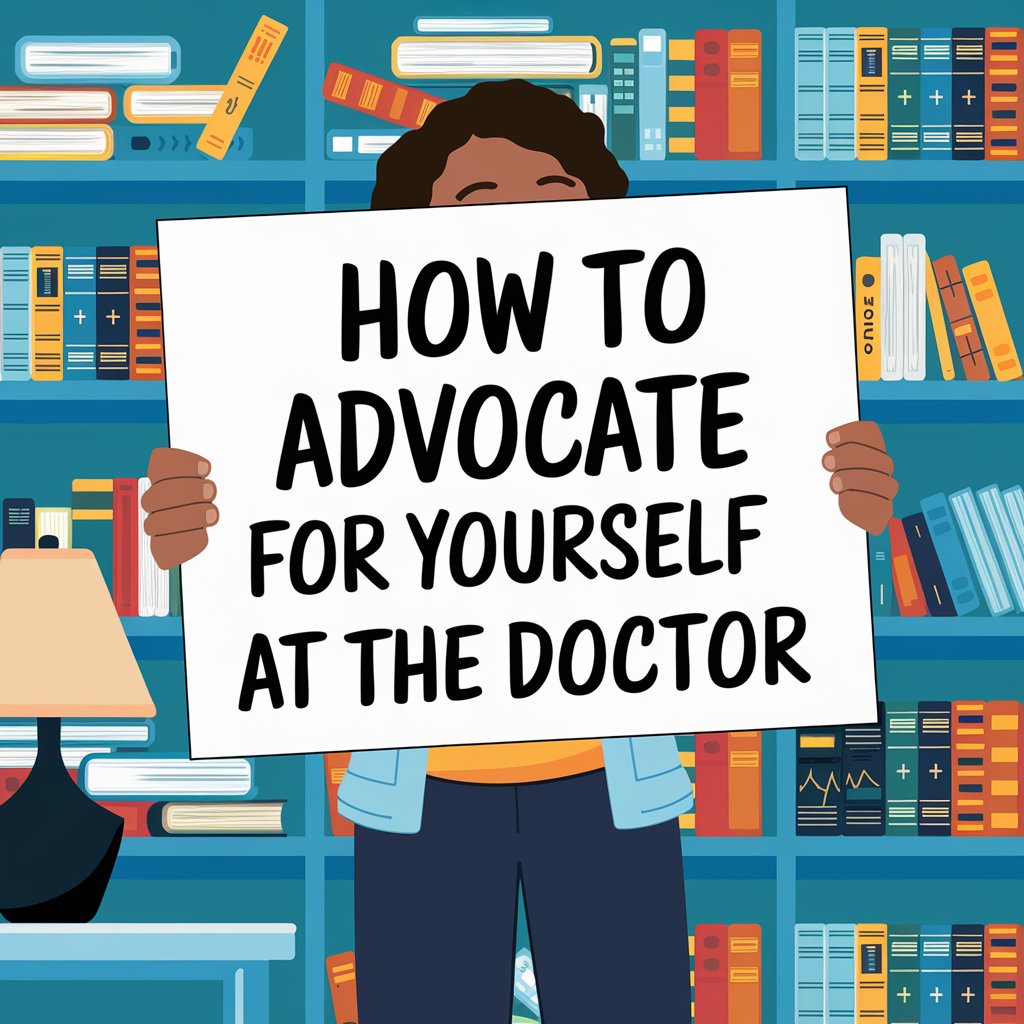Visiting the doctor can often feel intimidating, especially when you’re faced with unfamiliar medical jargon, time constraints, and the overwhelming responsibility of managing your own health. However, learning how to advocate for yourself during a doctor’s visit is essential to receiving the best possible care. Advocating for yourself means being proactive, informed, and confident when discussing your health. Here’s how you can ensure your voice is heard and your needs are met at the doctor’s office:
Write Down Your Concerns
It’s easy to forget things when you’re in the doctor’s office, especially if you’re feeling anxious or stressed. Writing down your symptoms, questions, and any concerns ahead of time ensures that you don’t leave anything out. Be specific about the duration and intensity of your symptoms, and note any patterns or triggers you’ve observed. Having a written list allows you to stay organized during the visit and ensures you address all the important issues, even if the appointment feels rushed.
Be Honest and Clear
Clear communication is key to effective healthcare. Be honest with your doctor about your symptoms, lifestyle, and concerns. If you’re embarrassed or afraid of being judged, remember that your doctor is there to help, not to criticize. Whether it’s discussing mental health concerns, disclosing lifestyle choices, or talking about medications and treatments, transparency is crucial for accurate diagnosis and treatment.
If your doctor uses medical jargon or provides explanations you don’t fully understand, don’t hesitate to ask for clarification. Asking questions like “Can you explain that in simpler terms?” or “What are the next steps?” can help you better understand your situation and treatment plan. The doctors at this Surfers Paradise medical centre will be more than happy to explain any situation in a way that is easy for patients to understand.
Ask Questions
Asking questions is an essential part of self-advocacy. If you’re unsure about a diagnosis, a treatment option, or the necessity of a particular test, don’t hesitate to seek more information. Some important questions to ask might include:
- What are the possible causes of my symptoms?
- What are the potential side effects of this treatment?
- Are there alternative treatment options?
- What lifestyle changes might improve my condition?
- Do I need to follow up, and if so, when?
The more you understand about your health, the more empowered you’ll feel to make informed decisions.
Don’t Be Afraid to Speak Up
If something doesn’t feel right, trust your instincts. If you believe the doctor is not addressing your concerns, or if a treatment doesn’t seem to be working, speak up. It’s okay to ask for a second opinion or request additional tests if you feel that your symptoms are being overlooked. You have the right to ask for referrals to specialists if needed, and you should never feel rushed or dismissed during your appointment. A good doctor will respect your input and work with you to find the best solutions.
Bring a Support Person
If you’re nervous or find it difficult to retain information during a doctor’s visit, consider bringing a friend or family member along for support. They can help you remember important details, ask questions on your behalf, and ensure that nothing important gets overlooked. Having someone with you can also provide emotional support and make the experience less overwhelming.
Know Your Rights
As a patient, you have rights that protect your ability to make decisions about your healthcare. You have the right to be treated with respect, to ask questions, and to be fully informed about your treatment options. If you feel that your rights are being violated, it’s important to speak up and, if necessary, find a healthcare provider who better meets your needs.






